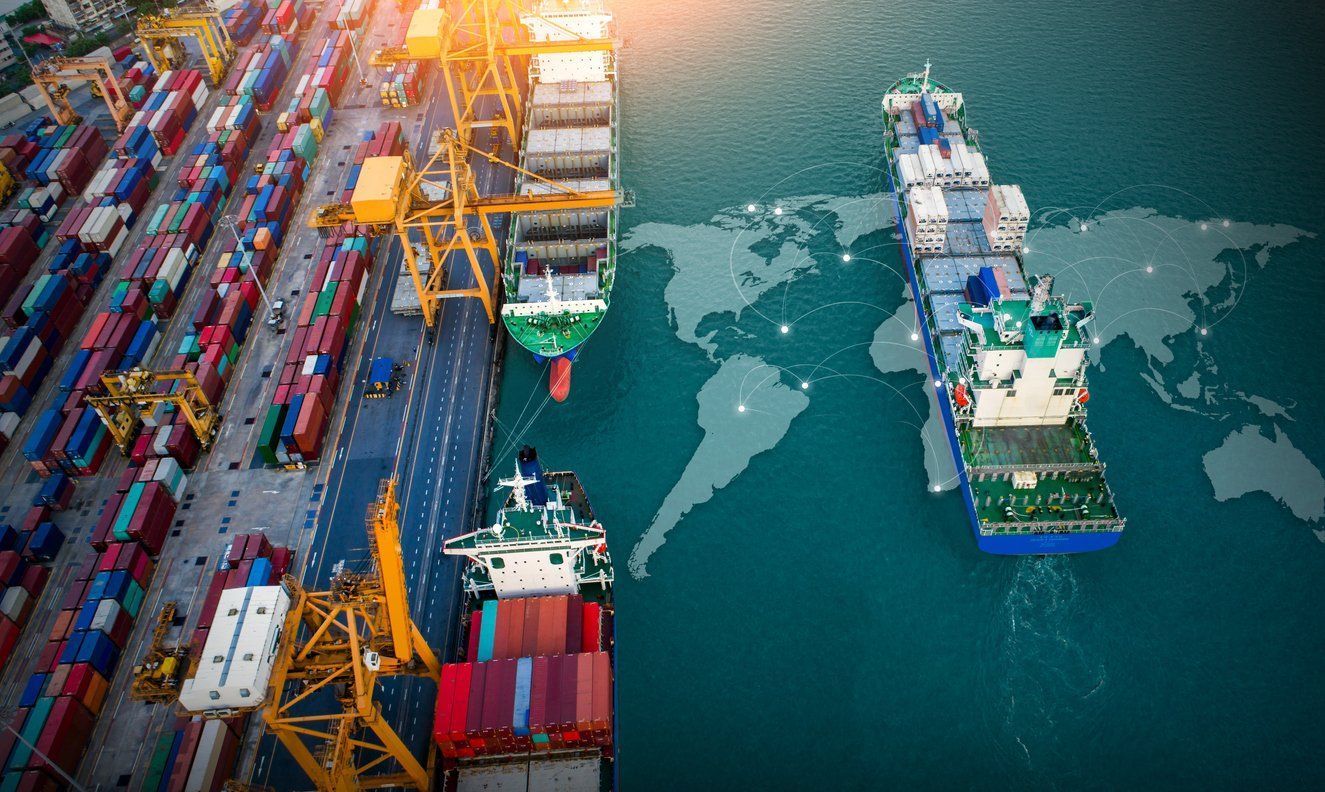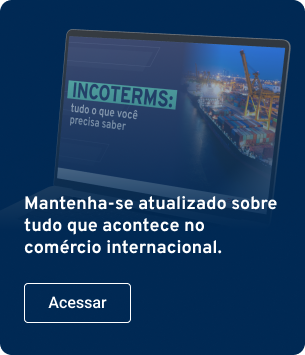Stay up to date with the latest news and articles from the world of logistics
Discover how Allink is transforming the logistics landscape by checking out the knowledge shared by our team of experts below.

In the world of international trade, the Pro Forma Invoice stands out as an essential document for formalizing the intent to buy and sell goods or services between importers and exporters. Although it lacks fiscal validity or binding character, it plays a crucial role in aligning expectations, facilitating negotiations, and serving as a foundation for subsequent processes, such as currency exchange or import license issuance. This article explains how to correctly interpret a Pro Forma Invoice and identify the most appropriate Incoterm for your operations. What Is a Pro Forma Invoice? A Pro Forma Invoice serves as a preliminary sales commitment in international trade transactions. It is an informative document, without fiscal validity, that outlines the terms and conditions of the proposed transaction between exporter and importer. Essentially a draft version of the final commercial invoice, it provides details about products, prices, payment terms, and other agreed-upon conditions. This invoice is critical for defining the correct Incoterm, which determines the responsibilities and costs of each party involved in the transaction. Purpose of the Pro Forma Invoice in International Trade The Pro Forma Invoice acts as a detailed negotiation proposal, including key information such as product prices, payment terms, delivery timelines, and transportation details. Primarily, it helps the importer assess the feasibility of the operation and plan finances. It is also often required for customs procedures and import license applications. Unlike a commercial invoice, the Pro Forma Invoice does not create a payment obligation. Issued at an early negotiation stage, it functions as a formal, detailed quote, establishing the basis for the final transaction. What Information Should a Pro Forma Invoice Include? While Brazilian customs regulations do not specify mandatory requirements for a Pro Forma Invoice, it is essential to include detailed information for clarity and accuracy. Key elements include: Exporter’s Details: Full name and contact address of the exporter. Importer’s Details: Full name and address of the importer. Item Description: Detailed descriptions, including quantity, NCM codes, unit price, total price, and measurement unit. Transportation Mode: Specify the mode of transport, such as air, sea, or land. Shipping Date: Indicate the expected shipment date. Incoterms: Clearly state the agreed-upon Incoterm to define responsibilities and costs. Shipping and Destination Locations: Specify the port of origin and the final destination. Net and Gross Weight: Include the weight without and with packaging. Packaging Type/Volume: Describe the packaging type and the number of volumes. Payment Terms: Detail the agreed payment terms, such as advance payment, cash on delivery, or installment plans. Including these details ensures a transparent and successful international transaction, providing importers with all necessary information to complete the import process efficiently and within regulations. Does the Pro Forma Invoice Have Legal Value? While it lacks accounting or legal validity, the Pro Forma Invoice plays a critical role in international trade. Requesting its issuance before any international purchase is highly recommended, as it serves as a preliminary record of the agreement. In disputes or operational issues, the Pro Forma Invoice can be used as evidence of the agreed terms between the exporter and importer. Additionally, regulatory bodies, such as Brazil's Suext (formerly Decex), may request the Pro Forma Invoice to verify declared prices during import license applications. Similarly, customs authorities may require it during inspections or audits. Although not legally binding, the Pro Forma Invoice is an important tool for documenting and supporting international trade transactions. Differences Between Pro Forma Invoice and Commercial Invoice The primary difference lies in the transaction stage at which each document is used. The Pro Forma Invoice initiates the negotiation process, while the Commercial Invoice is issued after the transaction is finalized, alongside other documents like the Bill of Lading and Packing List. The Commercial Invoice includes additional details, such as batch or serial numbers, which are essential for cargo identification during transportation and customs inspections. The Relationship Between Pro Forma Invoice and Incoterms Incoterms (International Commercial Terms) are standardized terms that define buyer and seller responsibilities in international transactions. In the Pro Forma Invoice, the chosen Incoterm specifies who bears transportation, insurance, and customs clearance costs, as well as the point where risks transfer from the seller to the buyer. For example: FOB (Free on Board): The seller is responsible for costs and risks until the goods are loaded onto the ship. After that, the buyer assumes all transportation-related responsibilities. DDP (Delivered Duty Paid): The seller covers all costs and duties to deliver the goods to the final destination. Including the correct Incoterm in the Pro Forma Invoice is crucial to avoid misunderstandings and ensure all parties understand their responsibilities. How to Use the Pro Forma Invoice for Logistics Planning The Pro Forma Invoice is a powerful tool for logistical planning in international trade. It allows the importer to calculate total operational costs, including freight, insurance, taxes, and customs duties. This estimate is critical for assessing the financial feasibility of the transaction and negotiating better terms with the exporter. Additionally, it is often used as a supporting document for import license applications, currency exchange processes, and even financing requests. With its detailed information on products, pricing, and payment terms, the Pro Forma Invoice serves as a reference for importers and regulatory or financial authorities. Common Errors in Pro Forma Invoice Issuance and How to Avoid Them Issuing a Pro Forma Invoice requires attention to detail. Errors or omissions can cause delays or even derail the transaction. Common mistakes include: Missing mandatory information, such as net and gross weight, technical specifications, and Incoterm details. Setting an insufficient validity period, rendering the document obsolete before negotiations conclude. To avoid these issues, review the document carefully before sending it to the importer. Additionally, request a validity period of over 90 days to ensure smoother subsequent steps. Conclusion The Pro Forma Invoice is more than just a quote—it is a cornerstone of international trade, providing the foundation for successful negotiations and efficient logistics processes. By interpreting this document correctly and ensuring it includes all necessary information, freight forwarders and brokers can prevent setbacks and ensure the success of international operations. Identifying the correct Incoterm in the Pro Forma Invoice is a critical step in clarifying responsibilities and avoiding unexpected costs. With proper planning and strategic use of this document, it is possible to optimize processes and strengthen global trade partnerships.

How would you define the key to a successful transportation negotiation? Many might argue that it’s clarity regarding the responsibilities of each party involved, avoiding unpleasant surprises and ensuring that goods arrive at their intended destination safely and efficiently. In the world of international trade transactions, this clarity is often provided by Incoterms (International Commercial Terms) – terms created by the International Chamber of Commerce that define the responsibilities of buyers and sellers. Among these terms, the Incoterm CIF is widely used in maritime transactions. However, understanding the nuances of the Incoterm CIF is essential to ensure that both parties understand their responsibilities from the moment of shipment to the final delivery of the goods. In this article, we will explore what the Incoterm CIF is, how it works, the responsibilities involved for the seller and buyer, and the importance of insurance in this context to ensure a smooth and successful negotiation. Incoterm CIF: What Is It? The Incoterm CIF, which stands for "Cost, Insurance, and Freight," defines the obligations of the seller and the buyer in international trade transactions where the goods are transported by sea. Under this term, the seller covers the costs until the cargo reaches the destination port and is responsible for arranging insurance for the cargo during transport. The Incoterm CIF is primarily used for goods crossing oceans, being common in sectors such as commodities, oil, and agricultural products. It provides a clear structure regarding who pays and who is responsible at each stage of transport. How the Incoterm CIF Works When an international sales contract uses CIF, the seller is responsible for delivering the goods onto a ship at the port of shipment, paying the freight for transport to the destination port, and arranging a minimum level of insurance during the maritime journey. The transfer of risk from the seller to the buyer occurs when the goods are placed on board the ship at the port of origin. From that moment on, any damage or loss that may occur during transport is the buyer’s responsibility, even if the seller has arranged insurance. If the goods do not arrive in perfect condition, in lesser quantities, or even if they do not arrive at all, the seller will have fulfilled their part by delivering them onto the ship. A reminder: when citing this rule, the appropriate way to reference it is: CIF (followed by the specific destination port) Incoterms 2020. What Are the Responsibilities Under Incoterm CIF? The Incoterm CIF clearly defines the responsibilities for both the seller and the buyer. These responsibilities are divided into two main phases: in the country of origin (seller) and in the country of destination (buyer). In the Country of Origin (Seller’s Country): The seller is responsible for: Packing the goods; Identifying the products; Loading the goods at the origin; Managing internal transportation; Arranging insurance in the country of origin; Covering export duties; Complying with customs procedures in the country of origin; Storing the goods, if necessary; Absorbing shipping expenses; Handling the stowage. Both parties (Seller and Buyer) are responsible for: Conducting inspections; Carrying out surveys. Between the Country of Origin and the Country of Destination: The seller is responsible for: Arranging transport; Contracting international insurance. In the Country of Destination (Buyer’s Country): The seller is responsible for: Unloading the goods. The buyer takes on the following tasks: Handling the goods after unloading; Storing the products when necessary; Dealing with customs procedures at the destination; Paying import duties; Organizing internal transport in the destination country; Contracting insurance in the destination country; Unloading the goods from transport vehicles, if applicable. Clarity in responsibilities facilitates negotiations, ensuring that both parties are aware of their roles when using the Incoterm CIF. Insurance in the Incoterms CIF One of the central aspects of CIF is the insurance, which must be arranged by the seller to cover potential losses or damages that may occur during maritime transport. However, it’s important to highlight that the mandatory insurance under CIF only covers a minimum amount, usually equivalent to 110% of the value of the goods, and is limited to basic conditions. The buyer, when opting for CIF, should be aware that the insurance arranged by the seller may not fully cover their interests. If they desire broader coverage, the buyer can arrange additional insurance at their own cost to ensure more comprehensive protection against potential losses or damages. How to Learn More About Incoterms? Incoterms are essential international rules that clearly establish the responsibilities and obligations of buyers and sellers in commercial transactions. If you are not yet familiar with these guidelines, it is essential to start understanding their provisions to ensure more transparent transactions without surprises. To clarify and simplify these concepts, our team of experts has created an Ebook especially for you: "Incoterms: Everything You Need to Know." This material is not only detailed but also completely free and was developed to provide a deep understanding of the subject. By deciding to download our guide, you will also receive, at no cost, the complete table of Incoterms. It’s worth mentioning that the latest updates to these rules were made in 2020, making our material up-to-date and aligned with the latest commercial practices. Dive deeper into this topic and ensure a safer and more effective approach in your international negotiations!

The Material Safety Data Sheet (MSDS) is an essential document in the context of transporting hazardous cargo. Responsible for providing detailed information about chemical substances, it is a fundamental tool to ensure safety in handling, storage, and transportation of these products. This article explores in-depth what the MSDS is, what information must be present, its importance in the transportation of hazardous cargo, how to fill it out correctly, and who is responsible for its preparation. What Is an MSDS? The MSDS is a standardized document regulated by the Brazilian Association of Technical Standards (ABNT) through NBR 14725, which standardizes the communication of chemical hazards. This document details the physical, chemical, toxicological, and environmental properties of chemical products, providing crucial information on safety, health, and environmental protection. It serves as a guide for professionals dealing with hazardous substances, enabling correct handling and response in emergencies. What Information Must Be Present in the MSDS? A complete MSDS must contain several sections addressing different aspects of chemical safety. Mandatory information includes: Product and Company Identification: Product name, synonyms, and details of the company responsible for manufacturing or marketing. Composition and Ingredient Information: Details about the product's components, including chemical identification and concentration of each substance. Hazard Identification: Description of the main risks associated with the product, such as flammability, toxicity, and chemical reactivity. First Aid Measures: Recommended procedures in case of exposure, such as contact with skin, ingestion, or inhalation. Fire-Fighting Measures: Information about the type of extinguisher to be used, explosion risks, and fire-fighting procedures. Accidental Release Measures: Actions to be taken in case of accidental release of the product, including containment and neutralization methods. Handling and Storage: Guidelines on how to handle and store the product safely, avoiding dangerous reactions. Exposure Control and Personal Protection: Indication of the necessary personal protective equipment (PPE) and occupational exposure limits. Physical and Chemical Properties: Details such as melting point, boiling point, density, solubility, and other relevant properties. Stability and Reactivity: Information on the chemical stability of the product and potential hazardous reactions. Toxicological Information: Data on health effects in case of exposure. Ecological Information: Potential environmental impacts, such as biodegradability and toxicity to aquatic life. Waste Disposal Considerations: Guidelines for the safe disposal of the product and its packaging. Transport Information: Specific requirements for the safe transportation of the product. Regulatory Information: Applicable laws and regulations for the chemical product. Other Information: Additional relevant data, such as revision history and references. The Importance of the MSDS in the Context of Hazardous Cargo Transportation In the transportation of hazardous cargo, the MSDS plays a vital role by ensuring that all parties involved are aware of the risks associated with handling and transporting chemical substances. This document is indispensable to guarantee that safety procedures are strictly followed, preventing accidents that could harm human health, the environment, and the integrity of the cargo. The MSDS is also essential for compliance with international regulations, such as the International Maritime Dangerous Goods Code (IMDG Code). The IMDG Code requires that hazardous substances be properly classified and labeled based on the information contained in the MSDS. Furthermore, in case of accidents during transportation, the MSDS provides precise guidance to mitigate risks and perform emergency procedures effectively. How to Fill Out the MSDS? Filling out the MSDS correctly requires attention to detail and a deep understanding of the chemical product's characteristics. The process involves: Gathering Technical Information: Collect all necessary data about the product, including its composition, physical-chemical properties, and potential health and environmental risks. Consulting Technical and Regulatory Standards: Ensure that the MSDS complies with NBR 14725 and other relevant regulations. This ensures that the information is presented in a standardized and understandable manner. Filling Out Mandatory Sections: Enter data in each of the 16 sections mentioned earlier, ensuring that all information is accurate and complete. Reviewing and Validating: Carefully review the document to correct errors or omissions. Then, validate the MSDS with chemical safety experts to ensure its accuracy and compliance. Periodic Updates: The MSDS must be reviewed and updated whenever there are significant changes in the product's characteristics or regulations. This ensures that the document remains relevant and useful for everyone involved in handling the product. Who Is Responsible for Filling Out the MSDS? The responsibility for filling out the MSDS lies with the manufacturer or importer of the chemical product. They must ensure that all information contained in the MSDS is accurate, up-to-date, and compliant with current regulations. Additionally, it is crucial that the document is available in all relevant languages, especially in regions where the product will be marketed or used. Companies that distribute or transport chemical products also have the responsibility to ensure that the MSDS is accessible and understood by all professionals involved in handling the substances. This includes drivers, cargo operators, and emergency response teams, who must be trained to interpret and follow the instructions contained in the MSDS. Conclusion The MSDS is an indispensable document in the transportation of hazardous cargo, offering detailed information that ensures safety and compliance with regulatory standards. Correct and updated completion of the MSDS is essential to mitigate risks, protect the health of workers, and preserve the environment. By rigorously following the guidelines for filling out and using the MSDS, companies and professionals can ensure safe and efficient transportation of hazardous chemical substances. Check out the infographic on how to transport IMO cargo .

Have you ever wondered how responsibilities are defined in an international trade transaction? Who takes care of the transportation of the goods, the costs and the insurance? The answer is simpler than it seems and is encapsulated in a concept called “Incoterms”. In this article, we will focus specifically on the FOB (Free on Board) Incoterm, a frequently used rule that has significant impacts on global trade. FOB (Free on board) what is it? FOB, an abbreviation for “Free on Board”, is a term used in international trade, specifically within the set of rules known as Incoterms. It describes a transition point of specific obligations between the seller and the buyer. When a deal is made under the Incoterm FOB, the seller’s liability ends at the moment the goods cross the ship’s rail at the designated port of shipment. Essentially, the seller has fulfilled his role once the goods have been loaded on board the ship. From that moment on, all charges, risks and possible losses related to the goods become the buyer’s responsibility. FOB is applicable to different types of water transport, including sea, river and lake transport. The official delivery of the goods occurs at the moment they cross the ship’s side, as indicated by the buyer. After this stage, all expenses and responsibilities related to the goods are transferred to the buyer. Incoterms categories Incoterms, an acronym for "International Commercial Terms", or, in Portuguese, "Termos Internacionais de Comércio", represent a set of rules that guide international commercial transactions. Through these terms, responsibilities, such as freight payment, the point of delivery of the goods and who should arrange insurance, are clearly defined and standardized. The list of Incoterms includes: 1. EXW (Ex Works): In this term, the seller makes the goods available to the buyer at the agreed location (which may be its own establishment or a warehouse, for example), assuming the minimum possible responsibility for the goods. 2. FCA (Free Carrier): Here, the seller is responsible for the goods until they are delivered to the carrier determined by the buyer. 3. FAS (Free Alongside Ship): In this case, the seller must deliver the goods alongside the ship indicated by the buyer, at the designated port of shipment. 4. FOB (Free On Board): The seller fulfills its obligation by placing the goods on board the ship at the port of shipment. 5. CFR (Cost And Freight): Here, the seller is responsible for paying the costs and freight required to take the goods to the port of destination. 6. CIF (Cost, Insurance And Freight): Similar to CFR, but the seller must also arrange insurance. 7. CPT (Carriage Paid To): The seller pays the freight to take the goods to the destination chosen by the buyer. 8. CIP (Carriage And Insurance Paid To): Similar to CPT, but the seller must also arrange insurance against the risk of loss or damage to the goods. 9. DPU (Delivered at Place Unloaded, formerly DAT): The seller delivers the goods to the agreed place of destination to the buyer. 10. DAP (Delivered at Place): The goods are considered delivered when made available to the buyer at the named place of destination. 11. DDP (Delivered Duty Paid): The seller delivers the goods to the buyer, cleared for import at the named place of destination. Incoterms Group F Group F of the Incoterms consists of rules that determine that the seller is responsible for costs, risks and insurance up to the point at which the goods are delivered for export. This group is made up of three distinct Incoterms: FCA, FAS and FOB. FCA (Free Carrier) obliges the seller to forward the goods to the designated carrier, assuming responsibility for customs clearance. The seller's obligation ends when the goods are delivered for export. FAS (Free Alongside Ship) stipulates that the goods must be positioned by the seller alongside the ship at the named port of shipment. Recently, with the update of the Incoterms, the task of clearing the goods became the seller's responsibility, whereas in previous versions, such responsibility fell on the buyer. Finally, FOB (Free on Board) determines that the seller must place the goods on board the ship indicated by the buyer at the designated port of shipment, in addition to complying with all export formalities. In this case, the buyer is responsible for paying the freight and all expenses related to the removal of the goods. It is worth noting that, among the three Incoterms in Group F, only FOB and FAS apply to waterway transport operations. In contrast, the Incoterm FCA covers all modes of transport, offering greater flexibility in this regard. FOB Incoterm in International Trade The FOB Incoterm has gained notoriety in international trade for offering simplicity and efficiency for both parties involved in the transaction. The popularity of FOB is largely due to the ease it provides for both the seller and the buyer. Under this term, the seller is responsible for delivering the goods on board the vessel designated by the buyer, which considerably simplifies the receipt process for the latter. All export formalities are taken care of by the seller, making the transaction more agile and less bureaucratic for the buyer. Additionally, the FOB Incoterm allows for a certain degree of flexibility during negotiations. Both parties can reach more efficient agreements on the sale, shipment and receipt of the goods, which can lead to a reduction in customs clearance bureaucracy. In short, FOB serves as a valuable tool in international trade, facilitating and streamlining commercial transactions. Responsibilities in Incoterm FOB The FOB Incoterm establishes a specific distribution of responsibilities between the seller and the buyer, depending on the location of the goods. In the country of origin, the seller is responsible for most of the responsibilities. This includes packaging and identification of the goods, initial loading, transportation within the country of origin, national insurance, export duties and storage. In addition, the seller takes care of customs paperwork at origin and shipping costs, as well as stevedoring. The responsibility for inspection and appraisal of the goods is shared between the seller and the buyer. When the goods are in transit between the country of origin and the country of destination, the buyer assumes responsibility for international transportation and insurance. In the country of destination, all obligations and costs pass to the buyer. This includes: handling of goods storage customs bureaucracy import duties transport within the destination country national insurance unloading of goods. It is crucial to remember that the FOB Incoterm has international scope and, like the other 11 Incoterms, when incorporated into purchase and sale contracts, it acquires legal force. This ensures a precise and determined legal interpretation, providing clarity and security for both parties involved in the commercial transaction. Conclusion In short, a proper understanding of the FOB Incoterm is crucial to a successful international trade transaction. Specifically, when working with an NVOCC for ocean freight quotes, it is imperative to define the correct Incoterms for the shipment. This accuracy ensures that the quote is accurate, without unexpected additional costs or underestimated expenses, which could result in financial losses. Therefore, whether you are a seller or a buyer, understanding the role of FOB in international trade is an absolute must. With this information in hand, you will be equipped to negotiate efficiently, avoid unwanted surprises, and ensure a successful international trade transaction.

In this article, we will explore the importance of Incoterms in the freight quotation process in partnership with an NVOCC. Using practical examples, we will address the reasons why it is necessary to quote with the correct Incoterms. In the following topics, we will explore the impacts of a quote without clear information regarding Incoterms, addressing the main challenges and consequences that may arise throughout the transportation and logistics process. We will analyze how the lack of adequate definition of Incoterms can generate unexpected costs, cargo blocking, delays and affect the reputation of the freight forwarder or agent who contracted the transportation. It is essential to understand the importance of Incoterms in the quotation and ensure their correct application for a successful and smooth negotiation in international trade. What are incoterms and what is their importance in the quotation? Incoterms are terms that define the rights and obligations of buyers and sellers in international sales contracts. They clearly establish the costs, risks and responsibilities involved in the transportation and delivery of goods. These terms are widely used in the international trade industry to avoid ambiguities and ensure that all parties involved have a common understanding of the agreed conditions. Understanding the relevance of these terms and using them appropriately in quotations is essential to ensure clarity, efficiency and security in operations. Cost Distribution: Incoterms are, in essence, the benchmarks for the distribution of costs in an import or export process. They determine at which stage each value will be applied, whether it will be the responsibility of the importer or the exporter. Point of Transfer of Risk: The moment at which the goods are delivered by the exporter is crucial. From this point on, it is determined who assumes the risks related to transportation and other adversities that may arise. The Incoterm chosen will determine at what point, for example, the "shipper" (or "exporter") ceases to be responsible for the cargo and delivers it to the "consignee" (or "importer"). Transportation Risk: We cannot disregard the issue of transportation risk. Incoterms specify precisely at what point in the transaction this risk is transferred. Therefore, when preparing a quote, it is extremely important to define which Incoterm will be used to clearly determine the extent of the responsibility of each party involved. When preparing a quote, Incoterms are essential to determine the international costs and services associated with the transaction. However, it is important to emphasize that the negotiation of Incoterms is carried out between the end customers, that is, the importers and exporters. A NVOCC, due to its neutrality, does not have access to the specific details of the agreement between the parties. Therefore, it is essential that the freight forwarder or broker be able to provide the necessary information about the costs and responsibilities agreed between the end customers. In maritime transport, the most commonly used Incoterm is FOB (Free on Board), which indicates that the seller is responsible for transport and costs until the moment the goods pass the ship's rail at the port of embarkation. A lack of clarity regarding the Incoterm used in the quote can lead to unexpected costs during the process of transporting and delivering the goods. Therefore, it is essential that all parties involved pay attention to the details and ensure that the terms are defined accurately and understood by everyone. In the specific case of Brazil, it is important to mention that the country does not accept the Incoterm DDP (Delivered Duty Paid) for imports due to tax issues. Therefore, when preparing a quote involving Brazil, it is essential to consider this information and use other appropriate terms. Impacts of a quote without clear information regarding incoterms A quote without clear information regarding Incoterms can have significant impacts on the entire transport and logistics chain. If a problem occurs at this initial stage, all subsequent stages of the process will be affected. Below are some of the main impacts resulting from the lack of or divergence of Incoterms in the quote: Change in costs and fees Accurate costing in a quote is an essential component of decision-making. Incoterms, which define responsibilities and costs, are a fundamental part of this equation. And when information relating to them is missing or inaccurate, the consequences can be significant. Many freight forwarders or brokers, when starting to search for quotes, do not provide a clear definition of the Incoterm to be used. Sometimes they simply seek an estimate based on a future shipment without concrete details such as the packing list, proforma invoice or the contractual terms between importer and exporter. In most cases, the simplest terms, such as FOB or CFR, are considered, as they represent the most basic “Port to Port” options. However, this approach may not reflect the reality of the proposed operation. The main impact of this lack of precision is clear: without knowing the actual Incoterm, an accurate cost estimate cannot be provided. This can lead to unpleasant surprises later in the process, resulting in unexpected changes in costs and fees. Failing to consider a complementary service Without a clear view of the Incoterms involved, there is a risk of overlooking essential services that may be crucial to the successful operation of an export or import. Often, when receiving an initial estimate based on a simplified term, such as Port to Port, the perception may be wrongly limited to the main transport – be it sea or air. However, this is only a fraction of the complete logistics process. Without clarity on the Incoterms, there is a risk of not considering complementary services that are vital to the flow of the operation. These may include: Collection: removal of the goods from the seller's location to the shipping point. Customs clearance: all processes related to customs clearance, which vary according to the regulations of each country. Insurance: The necessary protections for the goods throughout their transit, which may depend on the Incoterm chosen. These, among other services, are often essential, depending on the Incoterm in question, and neglecting them can result in disruptions, delays and additional costs. Load blocking Without clear Incoterms information, problems can occur when the cargo is loaded. Port authorities may require specific documents or evidence of liability that were not included in the quote. This can lead to the cargo being blocked at the port and significant delays in the transportation process. Incoterms are designed to clarify the responsibilities of each party involved in a transaction. For example, under certain Incoterms, the exporter is responsible for covering all costs and ensuring that the cargo is transported until delivery to the importer. If there is a misunderstanding or incorrect information about which Incoterm was agreed, the cargo may encounter problems upon arrival at its destination. The destination port or airport may charge the importer, which may refuse to pay, claiming that these costs were not their responsibility under the agreed terms. When cargo is held up due to misunderstandings or lack of clarity about Incoterms, costs can quickly accumulate. In addition to the fees associated with storing the cargo, additional costs may arise due to delays in the process. This situation can be further complicated if there is no clear understanding of who should bear these additional costs. Negative impact on the image of the freight forwarder or agent If a freight forwarder or agent fails to provide the correct Incoterms information in the quote, this can have a negative impact on the relationship with their client. Incorrectly purchasing a transport service due to unclear terms can result in problems and misunderstandings, which can affect the trust and image of the freight forwarder or agent. It is essential that all parties involved are aware of these details and ensure that the terms are defined correctly from the outset in order to avoid problems and ensure efficient and smooth negotiations in international trade. Serious problems that can occur (with a real example) Misunderstanding or misunderstanding Incoterms can have serious financial and operational consequences. Let's look at a real case: a Brazilian client exported to the US under the Incoterm "FOB", limiting its liability to the shipment of the goods. However, it informed its American client that the operation was "DDU", where it assumed liability until final delivery, excluding taxes. This ambiguous approach aimed to take advantage of tax incentives in Brazil. However, the situation became complicated when the cargo was stolen at a terminal in New York. The insurer, based on the "FOB", refused to pay compensation, while the importer, based on the "DDU", insisted on coverage and did not pay for the goods or the freight. A lawsuit was filed in the US and the exporter had to hire lawyers to try to be compensated by the terminal where the theft occurred. The loss from this shipment? More than R$1,000,000.00!!! This case highlights the need for clarity when defining Incoterms. Ambiguities or misunderstandings can lead to legal disputes and financial losses, highlighting the importance of all parties being aligned and aware of their roles and responsibilities. Non-existent incoterms that should disappear from your vocabulary Over time, some expressions have emerged that, while popular in some industry conversations, are technically non-existent or contradictory. Let’s explore some of these expressions and explain why they should be eliminated from your trading vocabulary, especially in quoting: FOB Prepaid "FOB" (Free on Board) refers to the seller delivering the goods on board the vessel at the port of shipment and the international freight being the responsibility of the buyer, i.e. collect (paid at destination). However, the term "prepaid" is not a recognized part of the FOB Incoterm, as it means that the freight would be prepaid (paid at origin). If the freight needs to be prepaid, CFR can be used, but be careful, because this incoterm involves other responsibilities. FCA with Collection The term "FCA" (Free Carrier) means that the seller makes the goods available at its headquarters or transports them to the location indicated by the importer. It is important to know where the cargo will be made available, which could be at the port or airport itself, for example. Adding "with collection" is redundant and may create confusion, since collection is implicit in the FCA. Remember that in the FCA, the importer is the one who carries out the customs clearance. Tax Free DDP "DDP" (Delivered Duty Paid) implies that the seller delivers the goods to the buyer, paying all customs duties. Therefore, "DDP without duty" is contradictory, as the core idea of DDP is that all costs and fees are covered, including taxes. DAP Collect "DAP" (Delivered At Place) indicates that the seller must arrange international transport and take the goods to the place agreed with the buyer, but the clearance at the destination and unloading of the goods are the responsibility of the buyer. If the seller needs to pay the freight, it will be prepaid (paid at origin) and no collect (paid at destination) is applicable. FOB Air "FOB" is a term used for ocean freight. Using it in the context of air freight is incorrect and can lead to misunderstandings. In air freight situations, terms such as "FCA" or "EXW" are more appropriate. CIF without Insurance "CIF" (Cost, Insurance, and Freight) explicitly includes the cost of insurance in the price of the goods. Thus, "CIF without insurance" is a contradiction in terms. After all, how do you find the right incoterm? How can a freight forwarder or broker ensure that he or she has the correct Incoterm before requesting a quote with an NVOCC? The answer often lies at the beginning of the negotiation process. When entering into an international commercial transaction, the exporter will usually send the importer a “proforma invoice”. This document is a preliminary sales agreement and usually includes essential details about the proposed transaction. Valuable tip: The proforma is the key to finding the correct Incoterm. Its structure contains a wealth of information related to the sales agreement, including, among others, the agreed Incoterm. This specification will determine the division of responsibilities and costs between the exporter and the importer. When the quote is made with the correct Incoterm, the main beneficiary is the freight forwarder or broker, as they will no longer face the potential problems already highlighted here. Conclusion In this article, we highlight the importance of Incoterms in the quoting process. They play a key role in defining the rights, responsibilities and costs between buyers and sellers in international trade. For freight forwarders and freight forwarders, it is crucial to have accurate access to Incoterms information when quoting services. This ensures accurate negotiation and avoids unexpected costs, cargo hold-ups, delays and reputational damage. The practical examples have demonstrated how a lack of clarity in Incoterms can have negative impacts, such as changes in costs, fees, cargo hold-ups and delays in the transportation process. As a reliable and capable partner, Allink stands out as an experienced NVOCC capable of meeting the needs of freight forwarders and freight forwarders. With precise knowledge of Incoterms, Allink ensures complete quotations and efficient international services. Therefore, when requesting a quote, it is essential to understand the importance of Incoterms and to rely on a reliable partner like Allink, which understands the relevance of these terms and guarantees a transparent and hassle-free negotiation.

The international guidelines published by the Câmara Internacional do Comércio , or ICC, are called INCOTERMS. The 2020 version of INCOTERMS comprises the terms of sale that regulate the responsibilities of each party involved in an import or export process. In other words, certain obligations now exist between the buyer and the seller. Conditions such as: 1- supply of goods; 2- transportation; 3- insurance; 4- customs procedures; and 5- place of delivery and collection of the cargo. These are aspects regulated by INCOTERMS and accepted worldwide. This designation is extremely important for international trade, as it clearly explains how to treat each cargo in question. However, it is important to remember that: in order for the use of INCOTERMS to be incorporated, those involved must correctly reference the term chosen in the contract (or equivalent documents) from the negotiation stage of purchasing the merchandise. These attributions are understood as a language of international sales and, by using them, they bring more credibility to the global commercial system.
Stay informed about foreign trade
Subscribe to our newsletter and receive free weekly updates about the world of logistics.




